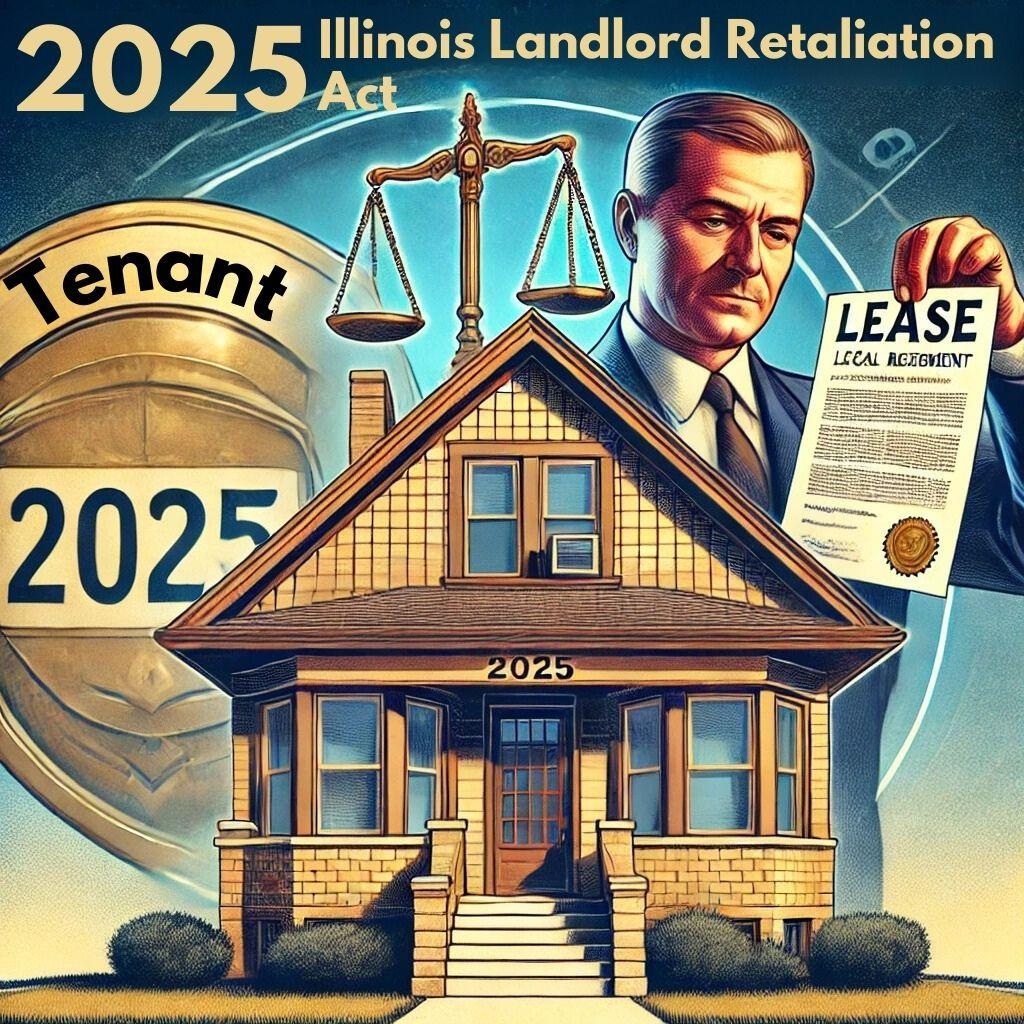Starting January 1, 2025, Illinois will introduce the Landlord Retaliation Act, a new law designed to protect tenants from landlord retaliatory actions. This law will significantly impact Chicago landlords and property managers, who must stay updated on the latest changes in Illinois landlord laws. In this blog, we’ll summarize what you should know about the 2025 Illinois Landlord Retaliation Act and offer practical advice on how to stay compliant. In short, understanding landlord-tenant relations has never been more important under this new law.

What is the Landlord Retaliation Act?
The Landlord Retaliation Act aims to protect tenants from retaliatory actions by their landlords. It addresses cases where landlords penalize or harass tenants for using their legal rights while acting in good faith. Tenants have a legal right to complain about code violations to a competent government agency, elected representative, or public official charged with enforcing building, housing, health, or similar codes.
This includes filing complaints about the rental unit's condition, joining tenant unions, seeking assistance from community organizations or the news media, testifying in court about illegal landlord practices, or taking other steps to remedy a situation.
The law applies to residential leases in the entire state of Illinois and requires landlords to carefully consider their actions when dealing with tenants who engage in these protected activities.
The Landlord Retaliation Act will take effect on January 1, 2025, giving Chicago property managers and landlords little time to understand the law and make any adjustments to their current practices accordingly.
Key Provisions of the Landlord Retaliation Act
The Act outlines actions that landlords and owners cannot take against tenants who engage in protected activities. These include:
Non-Renewal of Lease
Landlords cannot refuse to renew a lease simply because a tenant has filed complaints or exercised their legal rights.
Rent Increases
The Act prohibits landlords from increasing rent in response to tenant complaints or legal actions taken by tenants.
Evictions
Landlords cannot evict tenants in retaliation for exercising their legal rights, such as reporting unsafe living conditions or joining a tenant union.
Other Retaliatory Actions
Landlords can’t decrease services (like snow removal), increase security deposits, impose unreasonable fees, or change lease terms to harass tenants. They can also not threaten to sue tenants who are acting in good faith.
Why is the Landlord Retaliation Act Important?
The Landlord Retaliation Act addresses the power imbalance between landlords and tenants by ensuring tenants can assert their rights without fear of retaliation.
Repealing the 1963 Retaliatory Eviction Act, this law provides greater protections for tenants who file complaints, join tenant unions, or engage in other legal actions to improve their living conditions. By reinforcing tenant rights, the Landlord Retaliation Act fosters more ethical and transparent landlord-tenant relationships.
Practical Guidance for Compliance
As a landlord or property manager in Chicago, you must proactively understand how to comply with this new law. While many of these practical steps below should likely be things you do anyway, they’re even more important to follow under the new Act:
1. Document Everything
Keep detailed records of tenant interactions, including complaints, repair requests, and any lease-related communications. When possible, conduct all tenant interactions in writing (texts and emails count!). If you have a verbal conversation, get in the habit of following it up with written confirmation of the discussion and agreed-upon outcome. Proper documentation will help protect you in the event of a legal dispute.
2. Avoid Retaliatory Rent Increases and Lease Non-Renewals
If a tenant exercises their rights, ensure any rent increases or lease non-renewals are based on valid reasons, like market conditions or lease violations. Here’s where Step 1 will help you. Before you inform tenants of your intent to raise the rent, have market trends analyses in your possession to back up your decision. If you choose not to renew a lease, have your lease violation documentation ready.
3. Communicate Transparently
At the start of the tenant relationship, spell out expectations in writing. From there, maintain open communication with tenants to prevent any misunderstandings. As a landlord or property manager, you should address complaints and requests promptly and professionally (again in writing). This ensures tenants feel heard and respected. Follow up your transparent communication by completing the actions you agreed to do.
4. Seek Legal Advice When Needed
When in doubt, ask an expert. If you're uncertain whether an action could be considered retaliatory, don’t do anything until you consult with a legal professional to ensure compliance with the new law. If the damage is already done, quickly bring an attorney who specializes in landlord-tenant law to help.
How GC Realty Can Help
At GC Realty & Development, we specialize in simplifying landlord responsibilities so you can focus on what matters—growing your investment.
Let us help you avoid unnecessary consequences from crazy Illinois laws. Call or text 630-781-6744 now or schedule a time on the link below

 Vendor Portal
Vendor Portal


